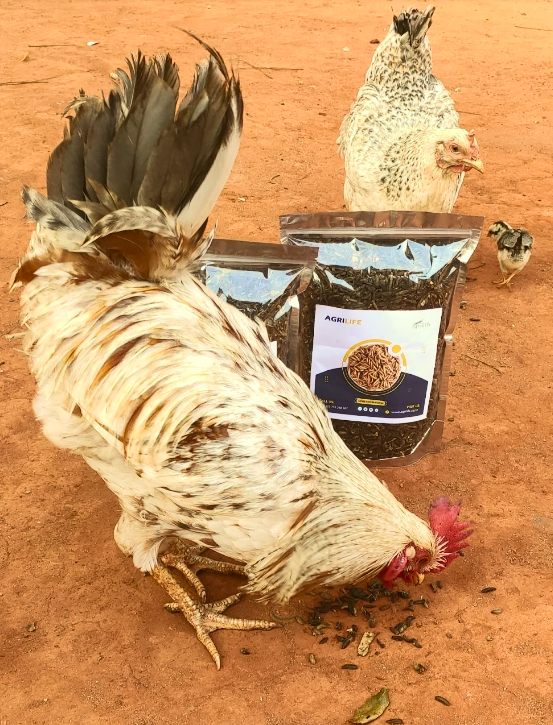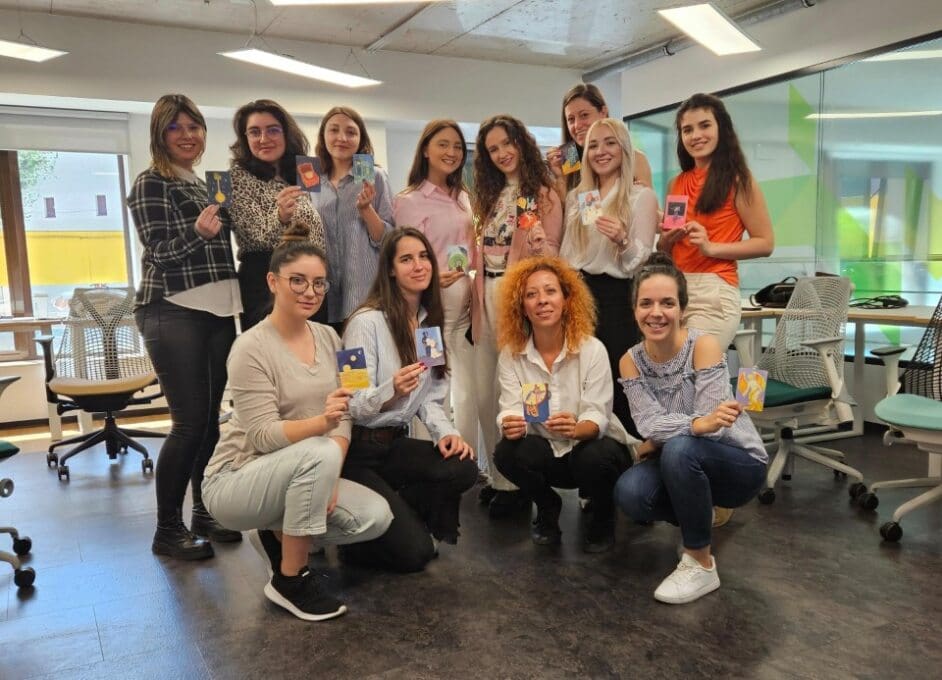Circularity Tales: from organic waste to alternative proteins
AgriLife, a Tanzania-based venture established in 2021, is on a mission to revolutionise sustainability by transforming organic waste into a valuable resource. By using black soldier fly larvae to produce eco-friendly protein for poultry and organic fertiliser for crops, AgriLife is tackling environmental issues associated with traditional livestock feed. With support from Impact Hub Dar es Salaam, AgriLife successfully incorporated circular principles into their business.
- Impact Hub Network
- Global team
In a world where waste generation is a pressing concern, it’s crucial to recognise that it’s not a happenstance occurrence but a consequence of how products are designed. Scientific sources emphasise that a staggering 80% of environmental impacts are determined during the product design stage. Today’s decisions often align with linear economy principles and consumption habits ingrained by capitalism, leading us down the path of increasing waste generation.
To combat the looming 3.40 billion tonnes of waste projected by 2050, as highlighted by the World Bank, a paradigm shift is imperative. The circular economy emerges as a beacon of hope, advocating for the redesign of products to eliminate waste and pollution, prolonging the lifespan of products and materials, and regenerating natural systems. It’s not just an environmental imperative; it’s a necessity for a thriving, sustainable global economy.
The Impact Hub Network is spearheading the charge towards circularity, making it a central priority of our mission to support businesses for a better future. Currently, they are actively integrating circular economy principles and activities across various Impact Hub locations in Europe and Africa. As part of their commitment, they have initiated the Circularity Tales series, shedding light on entrepreneurs within their network leading the circular charge.
In the first interview of the series, Constantine Edward, the Managing Director of AgriLife, a Tanzania-based business, shares insights into their circular journey. AgriLife, established in 2021, aims to revolutionise sustainability by pioneering a waste-to-nutrient technology. They utilise black soldier fly larvae to convert organic waste into sustainable protein for poultry and organic fertiliser for crops.
The motivation behind AgriLife’s innovative approach stems from the realisation that conventional livestock feed, sourced from fishmeal and soy, is unsustainable. To address this issue, AgriLife leverages nature’s recycling agents – black soldier fly larvae – to create a sustainable alternative. By doing so, they reduce pollution, lower the consumption of fishmeal and soybeans, and generate more nutritious food for livestock while decreasing the overall demand for food resources.
Constantine explains that circularity, once a minor concern, is now crucial. As the global population expands and resources become scarcer, the concept of circularity becomes synonymous with utilising resources wisely to ensure their sustainable reuse. AgriLife’s circular model efficiently repurposes organic waste, embodying the essence of circularity in a practical, sustainable, and logical manner.
Participating in Impact Hub Dar Es Salaam’s pilot programme focused on implementing circularity practices into businesses, AgriLife underwent a transformative journey. Initially, their business wasn’t extensively circular, but through workshops and collaborative brainstorming, they successfully incorporated circular principles. AgriLife now utilises upcycled plastic in their packaging, a testament to their commitment to sustainable practices.
Despite the rapid progress, challenges were encountered. The support from Impact Hub Dar es Salaam proved instrumental, particularly in areas like investment readiness. The training provided insights into attracting investors and understanding their expectations, offering AgriLife a clearer growth trajectory.

Looking ahead, AgriLife is poised for an exciting future. They are in the process of constructing a large insect breeding facility that can process over 4 tonnes of black soldier fly protein per month. In the next three years, they aim to recycle over 180 tons of organic waste into 60 tons of alternative protein annually.
As the conversation concludes, Constantine shares a valuable piece of advice for businesses venturing into circular practices – implement sharing models. These models facilitate the sharing of products and services, creating a circular network that reduces waste in packaging and material production.
AgriLife’s circular journey serves as a beacon of inspiration, showcasing that with commitment and innovation, businesses can transform their operations, contributing to a sustainable and circular future. The Circularity Tales series promises more stories of entrepreneurs pioneering circularity, reinforcing the notion that circular practices are not just a choice but a necessity for a better and sustainable tomorrow.
Unleash your impact potential today
Join our free global membership for the latest news, resources, and inspiring stories of entrepreneurial impact. Sign up now and ignite your journey towards making a difference.
You also might like

Empowering women entrepreneurs: insights from CAPSULE 2024 Bootcamp
Empowering women entrepreneurs: insights from CAPSULE 2024 Bootcamp

Celebrating artists tackling social and environmental issues
Celebrating artists tackling social and environmental issues

